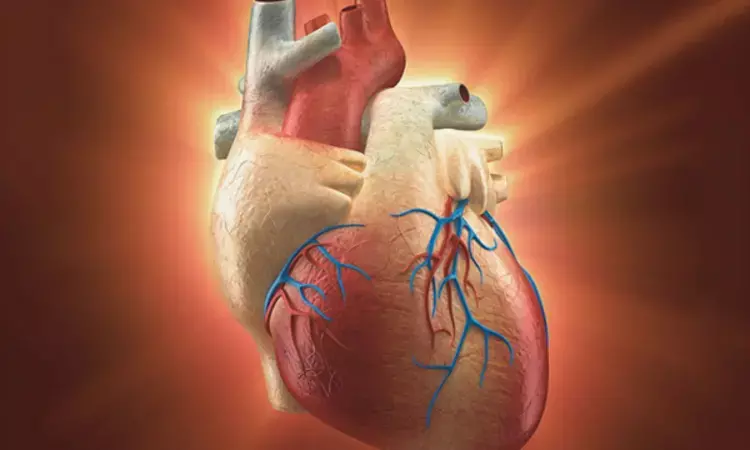- Home
- Medical news & Guidelines
- Anesthesiology
- Cardiology and CTVS
- Critical Care
- Dentistry
- Dermatology
- Diabetes and Endocrinology
- ENT
- Gastroenterology
- Medicine
- Nephrology
- Neurology
- Obstretics-Gynaecology
- Oncology
- Ophthalmology
- Orthopaedics
- Pediatrics-Neonatology
- Psychiatry
- Pulmonology
- Radiology
- Surgery
- Urology
- Laboratory Medicine
- Diet
- Nursing
- Paramedical
- Physiotherapy
- Health news
- Fact Check
- Bone Health Fact Check
- Brain Health Fact Check
- Cancer Related Fact Check
- Child Care Fact Check
- Dental and oral health fact check
- Diabetes and metabolic health fact check
- Diet and Nutrition Fact Check
- Eye and ENT Care Fact Check
- Fitness fact check
- Gut health fact check
- Heart health fact check
- Kidney health fact check
- Medical education fact check
- Men's health fact check
- Respiratory fact check
- Skin and hair care fact check
- Vaccine and Immunization fact check
- Women's health fact check
- AYUSH
- State News
- Andaman and Nicobar Islands
- Andhra Pradesh
- Arunachal Pradesh
- Assam
- Bihar
- Chandigarh
- Chattisgarh
- Dadra and Nagar Haveli
- Daman and Diu
- Delhi
- Goa
- Gujarat
- Haryana
- Himachal Pradesh
- Jammu & Kashmir
- Jharkhand
- Karnataka
- Kerala
- Ladakh
- Lakshadweep
- Madhya Pradesh
- Maharashtra
- Manipur
- Meghalaya
- Mizoram
- Nagaland
- Odisha
- Puducherry
- Punjab
- Rajasthan
- Sikkim
- Tamil Nadu
- Telangana
- Tripura
- Uttar Pradesh
- Uttrakhand
- West Bengal
- Medical Education
- Industry
Reduction in inflammation does not improve coronary microvascular dysfunction in rheumatoid arthritis: LiiRA Study

USA: Rheumatoid arthritis (RA) is not just a disease of the joints; it affects multiple systems in the body, including the cardiovascular system. In a groundbreaking development, the LiiRA study has uncovered the intricate interplay between systemic inflammation, myocardial injury, and coronary microvascular dysfunction in individuals with rheumatoid arthritis. These findings offer crucial insights into the cardiovascular complications associated with RA and may pave the way for targeted interventions to improve patient outcomes.
Researchers found that in RA patients on anti‐inflammatory therapy, despite a reduction in inflammatory markers like high‐sensitivity CRP (hs-CRP) & interleukin‐1b, there was no significant improvement in myocardial flow reserve (MFR). Nearly half had coronary microvascular dysfunction at baseline, yet neither high‐sensitivity cardiac troponin T (hs‐cTnT) nor MFR levels changed significantly.
The study findings were published online in the Journal of the American Heart Association on April 30, 2024.
Coronary microvascular dysfunction, measured by myocardial flow reserve, is associated with increased cardiovascular risk in rheumatoid arthritis. Brittany Weber, Brigham and Women’s Hospital, Harvard Medical School, Boston, MA, and colleagues aimed to determine the association between reducing inflammation with MFR and other measures of cardiovascular risk.
For this purpose, the researchers enrolled patients with RA with active disease about to initiate a tumor necrosis factor inhibitor. All participants underwent a cardiac perfusion PET scan to quantify MFR at baseline before tumor necrosis factor (TNF) inhibitor initiation and after the initiation of TNF inhibitor at 24 weeks. MFR <2.5 in the absence of obstructive coronary artery disease was defined as coronary microvascular dysfunction. Blood samples were measured at baseline and 24 weeks for inflammatory markers (eg, hs-CRP, interleukin‐1b, and hs‐cTnT).
The primary outcome was mean MFR before and after TNF inhibitor initiation, with Δhs‐cTnT as the secondary outcome. Secondary and exploratory analyses included the correlation between ΔhsCRP and other inflammatory markers with MFR and hs‐cTnT. 66 subjects were studied; 82% were women, and the mean RA duration was 7.4 years.
The following were the study’s key findings:
- The median atherosclerotic cardiovascular disease risk was 2.5%; 47% had coronary microvascular dysfunction, and 23% had detectable hs‐cTnT.
- There was no change in mean MFR before (2.65) and after treatment (2.64) or hs‐cTnT.
- A correlation was observed between a reduction in hs-CRP and interleukin‐1b with a decrease in hs‐cTnT.
The findings showed that nearly 50% of subjects had coronary microvascular dysfunction at baseline in the RA cohort with a low prevalence of cardiovascular risk factors. A reduction in inflammation was not associated with improved myocardial flow reserve. However, a modest reduction in interleukin‐1b and no other inflammatory pathways correlated with a decrease in subclinical myocardial injury.
Reference:
Weber B, Weisenfeld D, Massarotti E, Seyok T, Cremone G, Lam E, Golnik C, Brownmiller S, Liu F, Huang S, Todd DJ, Coblyn JS, Weinblatt ME, Cai T, Dahal K, Kohler M, Yinh J, Barrett L, Solomon DH, Plutzky J, Schelbert HR, Campisi R, Bolster MB, Di Carli M, Liao KP. Interplay Between Systemic Inflammation, Myocardial Injury, and Coronary Microvascular Dysfunction in Rheumatoid Arthritis: Results From the LiiRA Study. J Am Heart Assoc. 2024 Apr 30:e030387. doi: 10.1161/JAHA.123.030387. Epub ahead of print. PMID: 38686879.
Dr Kamal Kant Kohli-MBBS, DTCD- a chest specialist with more than 30 years of practice and a flair for writing clinical articles, Dr Kamal Kant Kohli joined Medical Dialogues as a Chief Editor of Medical News. Besides writing articles, as an editor, he proofreads and verifies all the medical content published on Medical Dialogues including those coming from journals, studies,medical conferences,guidelines etc. Email: drkohli@medicaldialogues.in. Contact no. 011-43720751


